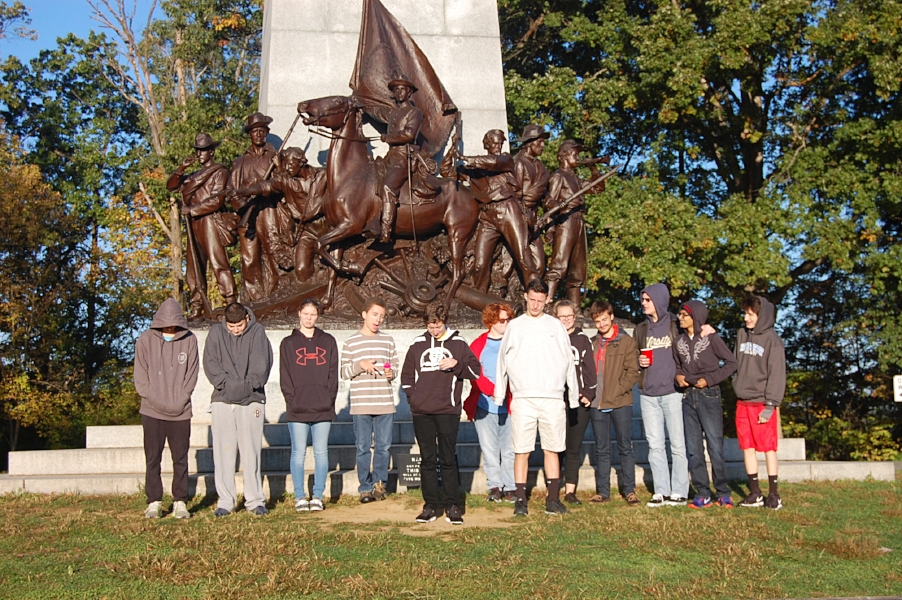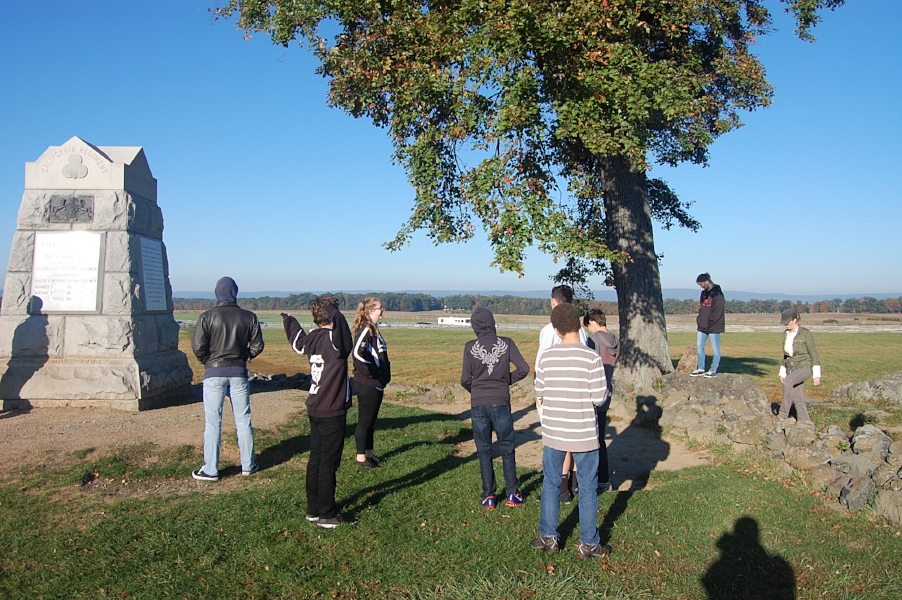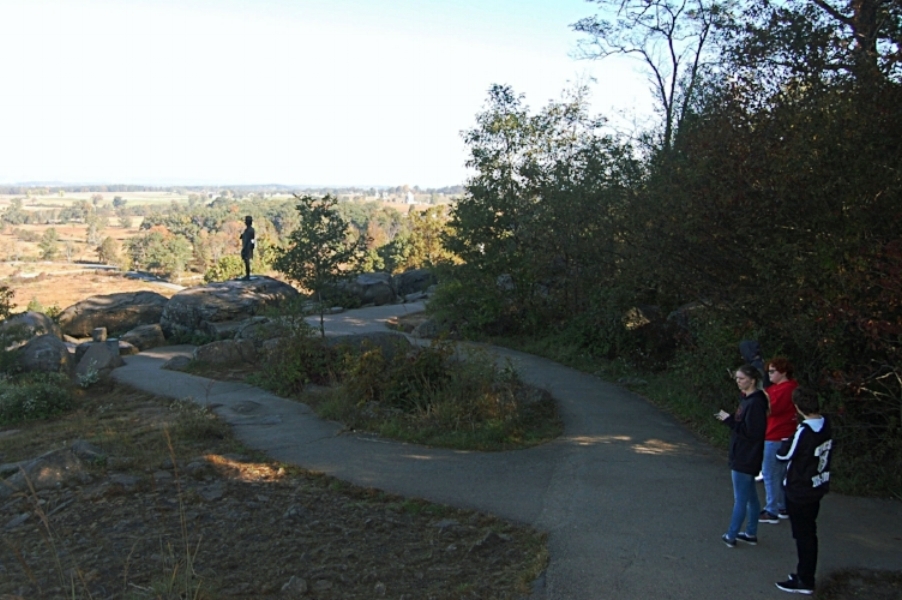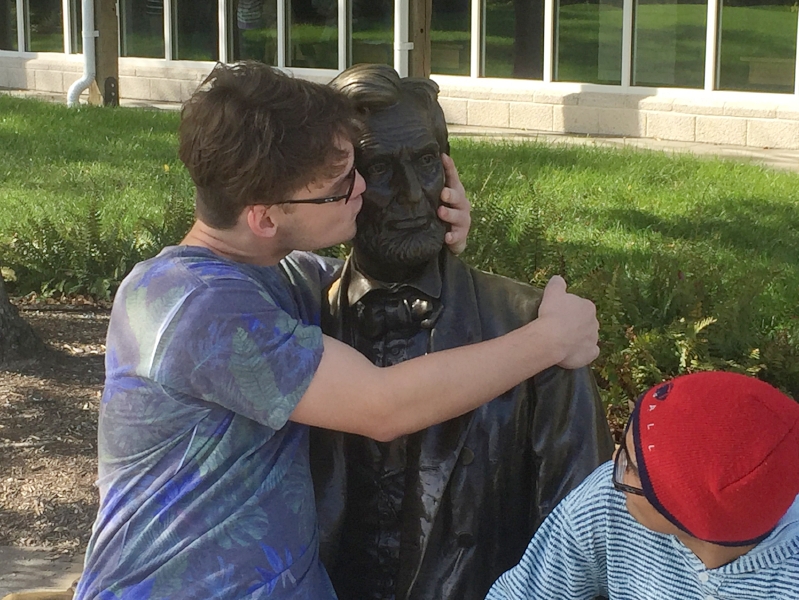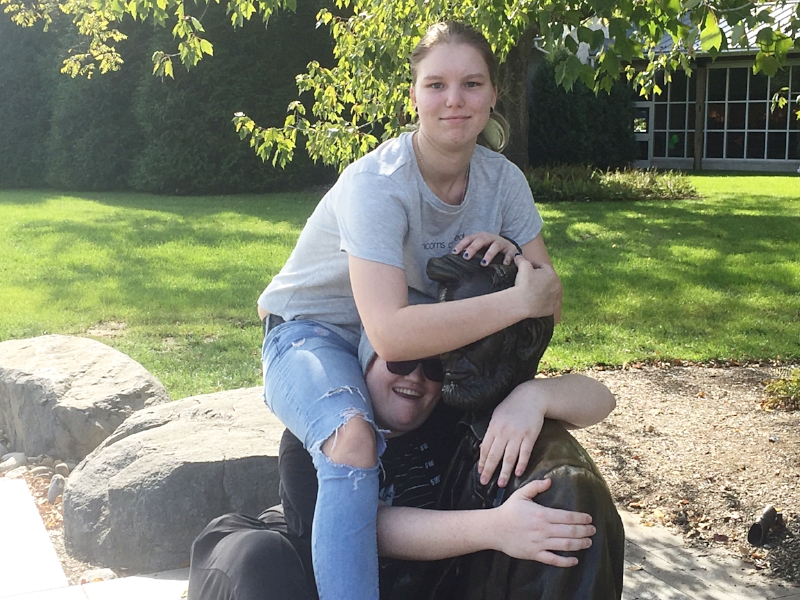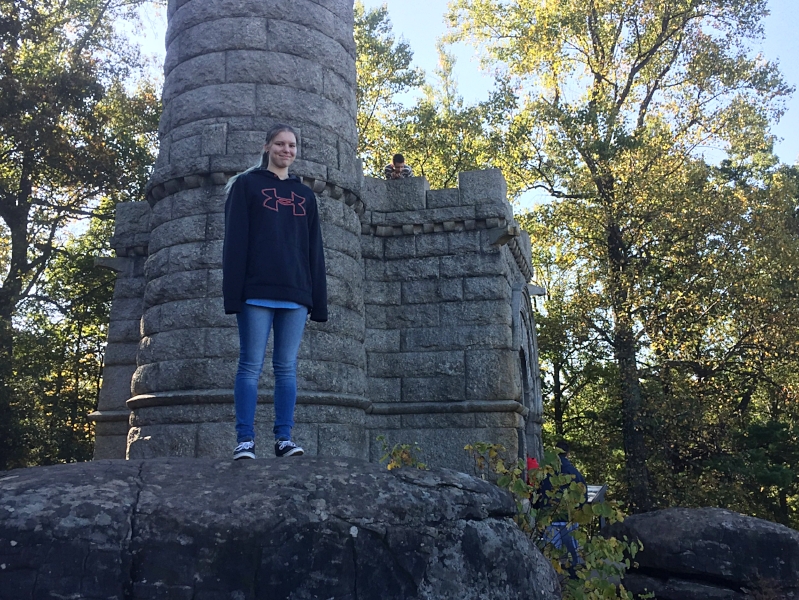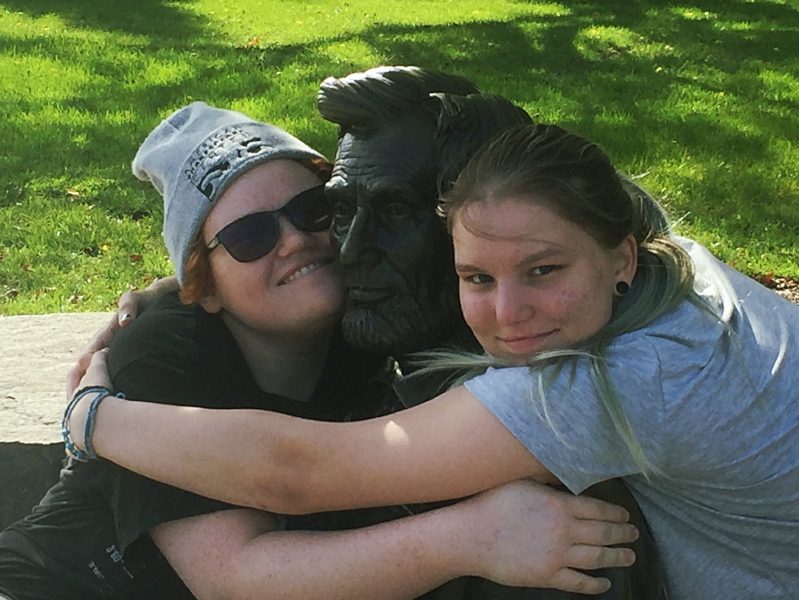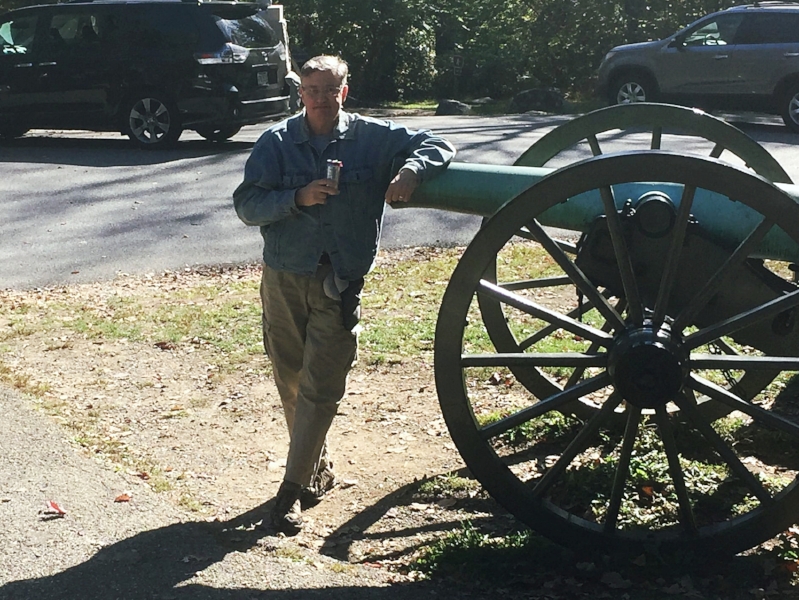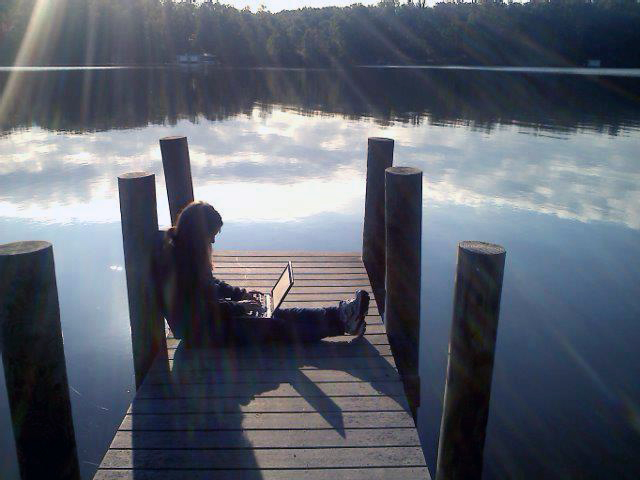Yes, the freshmen and sophomores get to go camping. Yes, the seniors get to sleep in cabins on the writing retreat. But nobody lives higher-on-the-hog than the juniors during the Gettysburg Trip.
Every fall, theGWCS junior class heads north to Gettysburg. It is not truly analogous to Lee’s march on Gettysburg in 1863, but we mention it. Of course we ride on highways through rolling hills and arrive in good condition and good spirits in less than three hours, and Lee’s troops arrived after a forty day March, but still, the similarities are undeniable.
The Battle of Gettysburg is a seminal moment in the history of the Unite States. Some argue that there might not even be a United States today had the outcome of this battle gone differently. Many soldiers from many states arrived and participated in the three day battle. From a safe distance (like the twenty-first century) it is a spectacle to behold. From Culps Hill to the North to Little Round Top in the south, the Union and Confederate sides fought in the largest, bloodiest battle on North American soil.
Together we spent the first day visiting the Memorial Graveyard, where Abraham Lincoln deliver the Gettysburg Address. Then we spent several hours investigating the battlefield museum followed by the awe-inspiring Cyclorama of the Battle of Gettysburg painted by Paul Phillipoteaux. In the evening we gathered together at conference room of the luxury hotel (Motel 6) and watched the movie, “Gettysburg,” which lasted about four and a half hours. With the basics covered, we were ready for day two.
Although the soldiers at the battle of Gettysburg fought on July 1-3 in hundred degree heat, we went out to the battlefield at dawn, with frost on the ground. We started at McPherson’s Ridge, went to the Eternal Flame, walked along Seminary Ridge, Pickett’s Charge, The Wheat Field, Little Round Top, and more. We stood where they stood. We looked out where they looked out, and we charged where they charged (albeit without guns, backpacks, heavy jackets, ammunition, and in the absence of hostile fire continuously raining-down on us) and wondered what it must have been like to have been there.
Morality? Philosophy? Loyalty? Duty? There are so many ways to consider a soldier’s life, and a soldier’s role in the grand scheme of things. More than 50,000 men (and one woman) were killed, wounded, or captured during this battle. The Tide of the war was turned in the favor of the union, once and for all. As Lincoln so aptly said, “The world…can never forget what they did here,” the results of their efforts so permanently ingrained in the DNA of the country that stands today.





